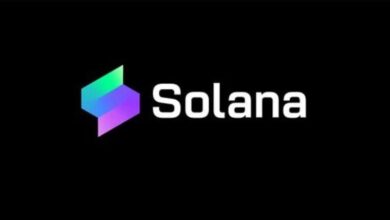Vitalik Buterin Proposes Genius Approach to Decentralize Ethereum Staking

Ethereum co-founder Vitalik Buterin has proposed a novel approach to enhance the decentralization of the Ethereum network by addressing correlated failures among validators.
Buterin shared his insights on March 27, advocating for decentralized staking through the implementation of anti-correlation incentives, as discussed on the Ethereum Research forum.
His proposal entails imposing higher penalties on validators who collectively fail and are controlled by the same entity, compared to individual failures. This strategy aims to mitigate risks associated with large actors whose mistakes could potentially impact all the identities under their control.
Buterin’s observations indicate that validators grouped within clusters, such as staking pools, are prone to correlated failures, likely stemming from shared infrastructure. To address this, he recommends penalizing validators based on the degree of deviation from the average failure rate. Consequently, a higher number of failures in a particular slot would result in elevated penalties for each failure.
Simulations conducted on this proposed approach suggest its effectiveness in reducing the advantage enjoyed by large Ethereum stakers over smaller ones. This advantage typically arises due to the potential for large entities to trigger spikes in failure rates through correlated failures.
The proposal carries several potential benefits, including fostering decentralization by encouraging separate infrastructure for each validator and promoting solo staking as a more economically competitive option relative to staking pools.
Buterin also explores alternative penalty schemes aimed at minimizing the disparity between big and small validators, along with assessing the implications on geographic and client decentralization. Notably, he does not delve into the possibility of reducing the minimum solo staking amount from the current threshold of 32 Ether (ETH), which translates to approximately $111,500 at the current market value of $3,573 per ETH.
Simultaneously, Ethereum is experiencing shifts in transaction fee dynamics, particularly with the introduction of new protocols like BlobScriptions. This innovative method allows users to inscribe data directly onto Ethereum’s blockchain, creating demand for block space and driving up gas fees.
The surge in gas fees following the introduction of BlobScriptions exemplifies the network’s susceptibility to congestion and fluctuating transaction costs.
Despite the initial spike, gas fees have since stabilized at lower levels, reflecting Ethereum’s dynamic fee market. However, these fluctuations underscore the need for scalable solutions to alleviate congestion and reduce transaction costs, especially as Ethereum continues to attract a diverse range of applications and use cases.
In summary, Ethereum’s journey towards decentralization and scalability involves navigating various challenges, including staking accessibility, transaction fee dynamics, and the proliferation of innovative protocols.
As the Ethereum community continues to innovate and adapt, finding sustainable solutions to these challenges will be crucial for realizing Ethereum’s full potential as a decentralized, scalable blockchain platform.





